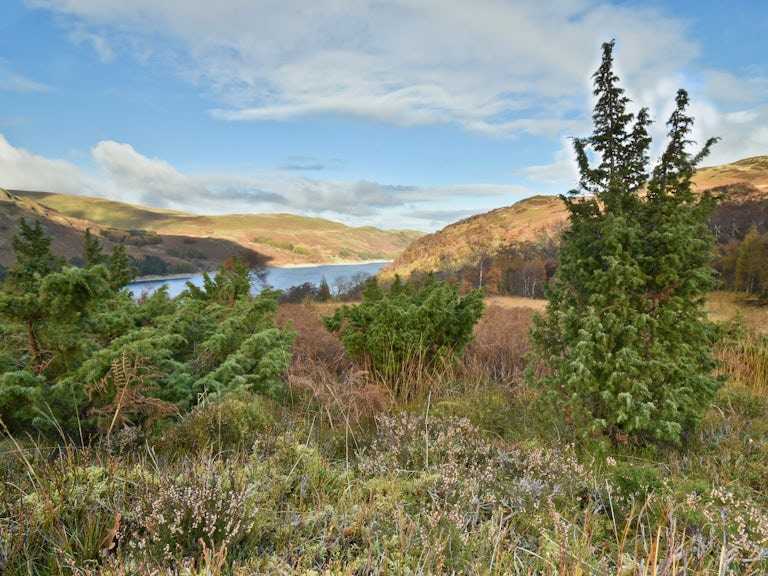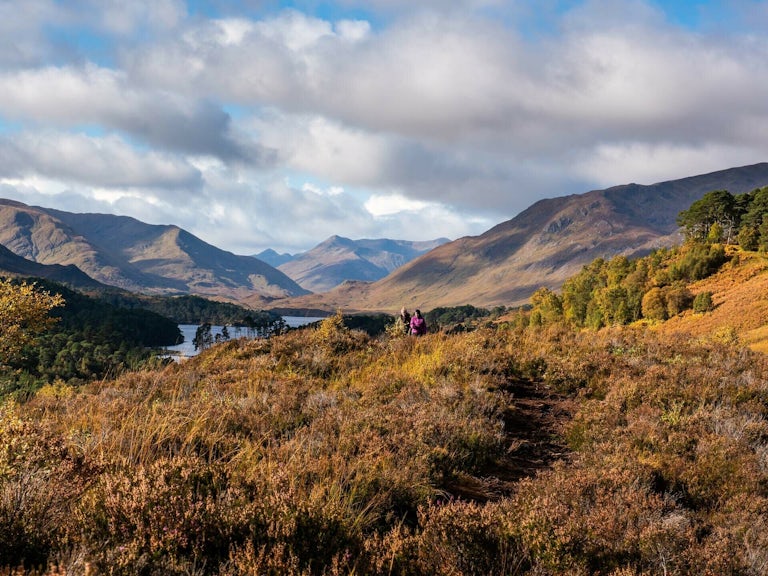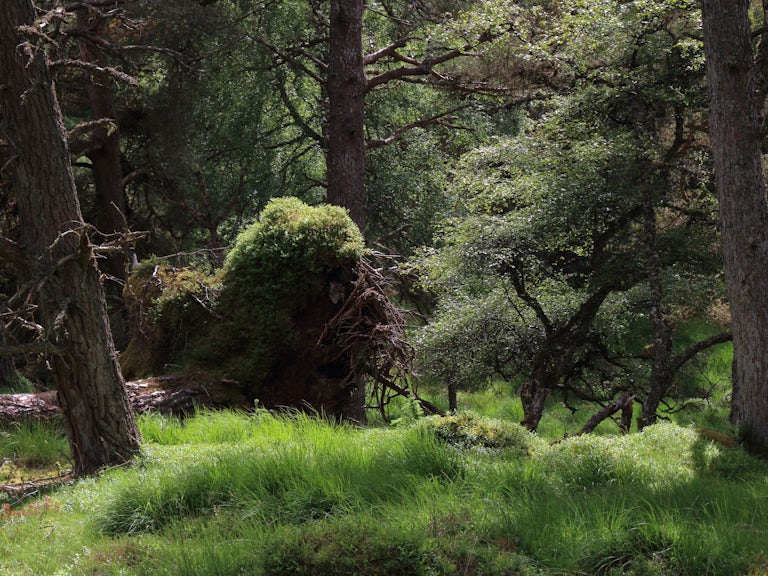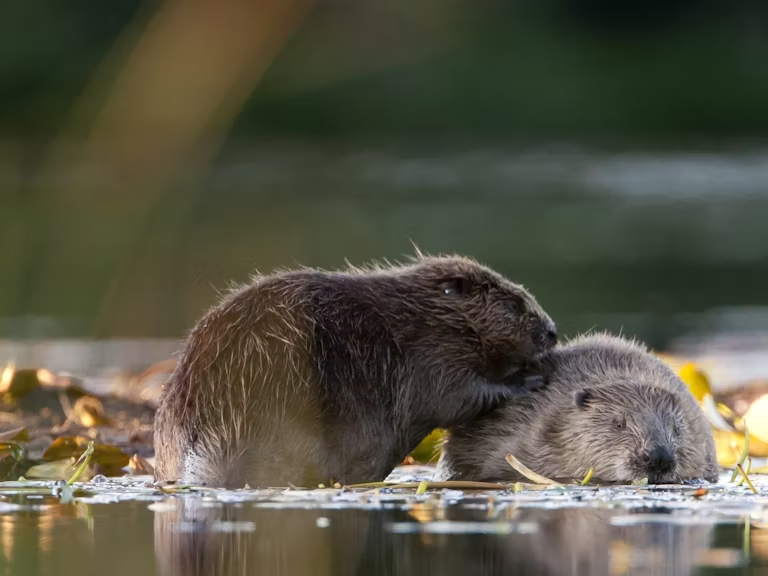The ocean’s solution to the climate emergency: blue carbon and rewilding our waters
New report outlines the importance of the UK’s seas in helping the UK to reach its goal of net zero by 2050.
The Marine Conservation Society has released a new report in partnership with Rewilding Britain, Blue Carbon – Ocean-based solutions to fight the climate crisis, which outlines the importance of the UK’s seas in helping the UK to reach its goal of net zero by 2050.
In order to reach net zero, the quantity of carbon dioxide taken from the atmosphere and stored in natural solutions must increase. By protecting and rewilding ecosystems in our ocean, blue carbon stores will have increased capacity and ability to store carbon.
The significant role of the world’s forests in helping to reduce carbon emissions has been formally recognised through numerous initiatives and reforesting projects intended to keep carbon locked into the world’s forests on land. Unfortunately, equivalent solutions in the ocean are often overlooked. In order to reach its goal of net zero by 2050, the UK must look to blue carbon solutions in tandem with those on land.
What is blue carbon?
Marine ecosystems like seagrass meadows, saltmarshes and mangroves absorb or ‘draw down’ carbon from the water and atmosphere, just like plants and trees on land. The storage of carbon in marine habitats is called blue carbon. The storage of blue carbon can be in the plants themselves, like seaweed and seagrass; in the seafloor sediment where plants are rooted; or even in the animals which live in the water, including seabirds, fish and larger mammals. Blue carbon is simply carbon absorbed from the water and atmosphere stored in the world’s blue spaces.
Dr Chris Tuckett, Director of Programmes at the Marine Conservation Society: “Carbon contained in marine and coastal ecosystems must be considered in the same way as our woodlands and peatbogs…critical to the UK’s carbon strategy. Our report outlines how vital blue carbon solutions are to an effective strategy which reaches net zero by 2050.
“We’re calling on the UK Government and devolved administrations to act with urgency to invest in, co-develop and implement a four nation Blue Carbon Strategy”.
The suggested strategy focuses on three key action areas:
- Scaling up marine rewilding for biodiversity and blue carbon benefits.
- Integrating blue carbon protection and recovery into climate mitigation and environmental management policies.
- Working with the private sector to develop and support sustainable and innovative lowcarbon commercial fisheries and aquaculture.
Globally, the rewilding of key blue carbon securing marine and coastal ecosystems such as seagrass beds, saltmarshes and mangroves could deliver carbon dioxide mitigation amounting to 1.83 billion tonnes. That is 5% of the emissions savings we need to make globally. This figure doesn’t include the enormous quantities of carbon stored in fish and other marine life; in marine
ecosystems such as coral reefs, seaweeds and shellfish beds; or the vast stores of carbon in our
seabed sediments.
“We’re calling for the rewilding and protection of at least 30% of Britain’s seas by 2030”
Rebecca Wrigley
Rewilding Britain’s Chief Executive
“Allowing a rich rainbow of underwater habitats and their sealife to recover offers huge opportunities for tackling the nature and climate crises, and for benefiting people’s livelihoods. From Dornoch Firth to Lyme Bay, inspiring projects are leading the way by restoring critically important seagrass meadows, kelp forests and oyster beds. Combined with the exclusion of bottom towed trawling and dredging, such initiatives offer hope and a blueprint for bringing our precious seas back to health.”
Later this year, the UK will be hosting COP26 — the UN Climate Change Conference – in Glasgow. The conference brings together world leaders to accelerate action towards the goals of the Paris Agreement and the UN Framework Convention on Climate Change. The ocean and its blue carbon stores are a crucial part of the many urgent and varied solutions required to address the climate crisis.
The UK has committed to significantly increase its spending on nature-based solutions, including those offered by the ocean. The Marine Conservation Society and Rewilding Britain are calling on UK governments to adopt ocean-based solutions at pace and scale by 2030.
Press Contact
Victoria Riglen, Media Relations Manager ([email protected] / 07421 994816)
- The Blue Carbon – Ocean-based solutions to fight the climate crisis report can be found, alongside a media and parliamentary briefing, in this Dropbox folder . For more information, please visit the Marine Conservation Society’s blue carbon pages.
- The Marine Conservation Society campaigns for clean seas and beaches, sustainable fisheries, and protection of marine life. Through education, community involvement and collaboration, the Marine Conservation Society raises awareness of the many threats that face our seas and promotes individual, industry and government action to protect the marine environment. The Marine Conservation Society provides information and guidance on many aspects of marine conservation and produces the Good Fish Guide as well as involving thousands of volunteers in projects and surveys such as Beachwatch. www.mcsuk.org .
- Rewilding Britain wants rewilding – the large-scale restoration of nature to the point it can take care of itself – to flourish to reconnect people with the natural world, sustain communities, and tackle the extinction and climate crises. See rewildingbritain.org.uk .



